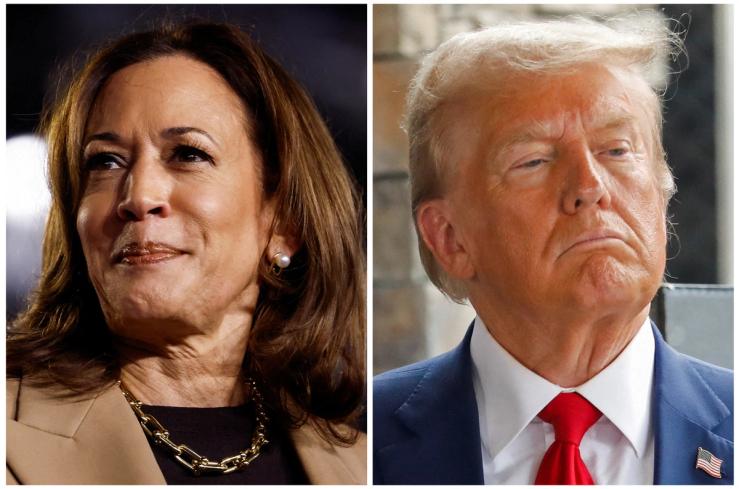The News
While world governments prepare for two vastly different outcomes in the US election, with many fearing a victory for former President Donald Trump could upend the global order, China is remaining stoic.
Beijing is braced for instability regardless of who wins on Nov. 5, Chinese analysts say, as relations between the two superpowers remain at their most contentious level in years, amid a burgeoning trade war and flashpoints over technology.
Economically, however, experts caution that China is less prepared for a second Trump presidency than a Harris administration, in particular the punitive export tariffs that the Republican candidate has vowed to impose.
SIGNALS
China’s economy is less prepared for a Trump presidency
China’s economy has largely adjusted to the protectionist trade policies implemented under current US President Joe Biden, according to the investment management group China International Capital. In turn, a potential Harris presidency would likely have a “relatively small” impact on Chinese markets because her tariff proposals, like Biden’s, are targeted to specific and relatively resilient industries, like tech. But Trump’s proposed 60% or higher tax on all Chinese exports to the US would “inevitably” drag down Chinese GDP growth, the firm predicted, and Beijing could see its fiscal deficit increase by at least 2.6 trillion yuan to compensate for the decline.
Taiwan will remain a point of contention
Trump has long seen Taiwan as a diplomatic “bargaining chip,” according to the China Military Channel WeChat security blog, and his position on the island’s security could be dependent on the potential for trade deals with Beijing on the one hand and Taipei on the other. Chinese defense analysts believe his apparent lack of commitment could make it more likely that China would invade Taiwan during a possible second Trump presidency. Meanwhile, while Harris has made clear she would defend Taiwan, and that she is “deeply aware of the current strength of the mainland” and wants to avoid any conflict, the Business Brief Review blog wrote. However, Chinese analysts predicted that Taiwan’s president may try to provoke Beijing, creating a difficult situation for Harris.
American democracy’s PR campaign sees little success
The US Embassy in China posts frequently on Weibo and other Chinese social media platforms, with updates and analysis on the election. However, the posts have invited criticism from Chinese social media users as exposing democracy’s “many drawbacks and hypocritical nature,” as Yǒulǐ’er Yǒumiàn, a nationalist geopolitics blog, stated. Weibo users have also criticized the US election as a “rich man’s game,” with both candidates reliant to some extent on wealthy donors, and there is a perception that billionaires like Elon Musk can “bribe” voters with no consequences. Democracies depend on cooperation, the blog argued, but that also seems at risk because “social divisions will be exacerbated” after November.



